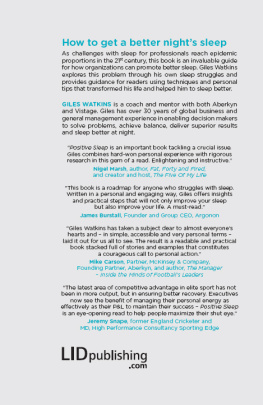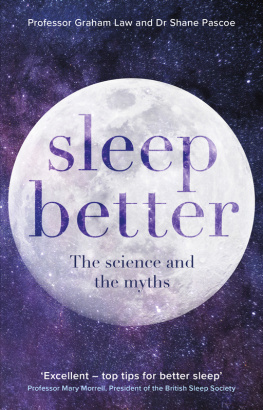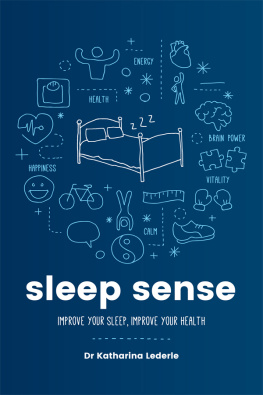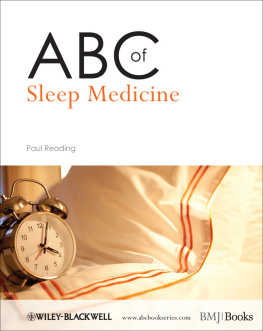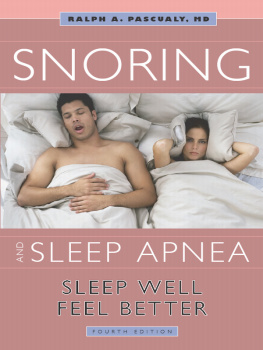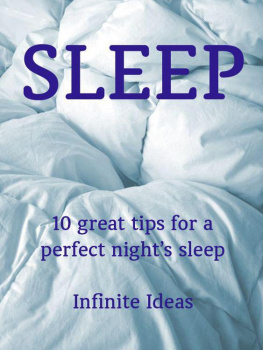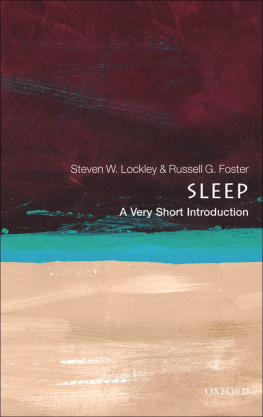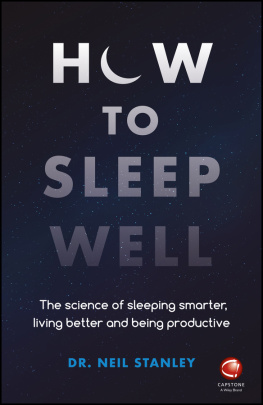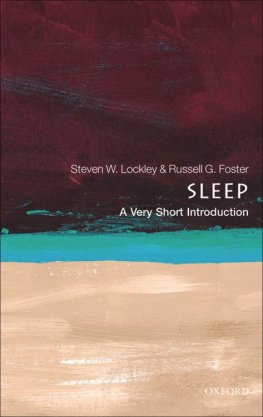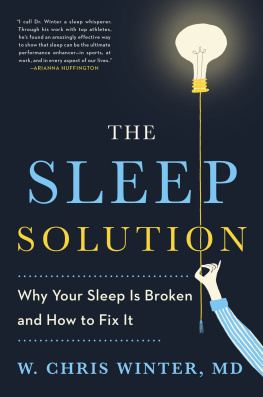ACKNOWLEDGMENTS
I would like to thank Elizabeth Florent-Treacy, whose wisdom was the catalyst to my choosing both sleep and an auto-ethnographical approach for my original thesis, written as part of my Executive Masters Programme in Coaching and Consulting for Change at INSEAD in Singapore. This would prove to be a life-changing decision for me, for which I am truly grateful.
Also thanks to my thesis editor, Kah Ying Choo, for her skill, authenticity and professionalism over the period of more than two years that we worked together. Without you, this thesis would never have been completed.
To my many teachers and peers from Wave 16 of the INSEAD programme in Singapore who walked with me along the journey. Thank you all for providing the key inspiration for my transformation.
Also to Paul Forman and Simon Youngs at Coats Group plc, whose sponsorship of my enthusiasm to undertake the Masters programme enabled me to do so.
I would never have written a book without the encouragement of Ben Renshaw, who was an early coach of mine. We first worked together in 1999, and meeting Ben for a cuppa (no caffeine, of course!) in July 2018 led to the writing and publishing of Positive Sleep.
To all at LID you more than justified Bens recommendation! I must single out LIDs Head of Publishing for particular praise. Always both thoughtful and timely in her responses, Sara Taheri has really pulled this book together from the strands that Ive written.
My illustrator Alistair Bullen, founder of ABA, has brought each part of the book to life with his drawings. Thanks Al for hatching the idea to work on this in the first place during a washed out day at Lords Cricket Ground and for honouring your promise as always.
Ashok Ferrey, Sri Lankas leading English language author still resident in the country, was constantly telling me I had a voice and should write something when I lived and worked in Colombo between 2010 and 2014. Thanks Ashok you were right.
The Next Business School in Colombo, Sri Lanka gave me my first paid talk on Sleep. Thanks to Kumudu Abeyawardane and her team for their faith in me.
The Peer Group Advisory Board of SME CEOs that I run through Vistage have not only let me practice some of my theories on them, but have also given me feedback thats been incredibly perceptive and useful. Thanks to Claire Bodanis, Paul Turnbull, Quentin Crowe, Matt Gray, Tao Xing, Luke Redman and most especially Ashley Hayward, who also lent me the exceptional Think room at Workplace House, Kinnarps UKs London Showroom, to write in.
Claire Bodanis also introduced me to fellow Dark Angels John Simmons and Martin Lee who shared their wisdom on how to write. Please dont blame them for the results! Their tips certainly helped me to enjoy the process more.
My colleagues within the Aberkyn (a wholly owned member of the McKinsey family of firms), who have so often generated great insights to support me on the writing path. In particular, Jack Pinter, Neil Pearse, Mike Carson and Maggie Elis have been a constant source of encouragement to me in the latter stages of writing.
Andy Wolfe and Mark Albas of Arcadia Consulting have been key in helping me improve my executive presence to communicate the key insights from this book face-to-face. Im most grateful to you both in helping me get my message out there to assist others in this way.
Thanks to Kim Raine you raised my awareness of the connection between diet, exercise and sleep and inspired me to kick my coffee addiction.
A number of people who have read the book have been generous with their endorsements: Nigel Marsh, James Burstall, John Blakey, Celynn Morin, Ben Renshaw, Nikki Owen, Els van der Helm, Jan Lloyd, Mark Albas, Ashok Ferrey, Romy Murray, Mike Carson, Lena Parker, Jo Macsween, Jack Pinter, Jeremy Snape, Kate Fismer, Marjorie Brown, P.B. Subbiah, Tony Verbraeken, Narendra Laljani, Loic Sadoulet, Nikki Gerling and Tanya Kabalin. Sincere thanks to you all.
To my Mum and Dad for many things, including inspiring a love of napping! And to Nick, Jess and Sue for their love and support along lifes journey.
To Sophie, who endured the bad bits and inspired the writing of this, thanks for your love and patience.
And to Elliott I trust that you will learn from your dads mistakes and value a good nights sleep as the foundation of health and as a cornerstone of success.
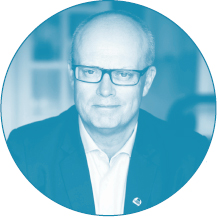
Ptoto by Stacey Mutkin
ABOUT THE AUTHOR
Giles Watkins is a coach and mentor with both Aberkyn and Vistage. Giles has over 30 years of global business and general management experience in enabling decision makers to solve problems, achieve balance, deliver superior results and sleep better at night.
The issue of sleep difficulties is an oft-neglected topic that affects many people today. Having struggled myself with sleep problems for over a decade and, ultimately having identified potentially effective solutions, I am constantly being asked how sleep challenges can be overcome. Anywhere, from presentations I run for groups about sleep to informal chats at the bus stop, people love to talk about sleep! Whatever the sleep challenges stem from work pressures, relationship issues, becoming a parent and so on lack of sleep can easily dominate your life, as it did mine. So, although numerous institutions such as the Harvard Medical School have promoted sleep as a foundational pillar of health together with diet and exercise, literally hundreds of millions of people are suffering the health effects of lack of sleep physical, mental and emotional.
To many it feels like our days and nights are under attack. In post-industrial societies it seems that many regard sleep as simply time wasted which could be put to other, more worthwhile uses. In The Sleep Revolution, Arianna Huffington illustrates the depth of the problem when she quotes the former US Surgeon General Dr Vivek Murthy. Health is deeply intertwined with culture: what we eat, how active we are, how much we sleep, said Dr Murthy. When I was training in medicine for example, there was a culture that strong people didnt need sleep . It is not helpful to have a culture that supports unhealthy practices like that. So, if the medical profession is not truly behind promoting healthy sleep in society and being a role model for this behaviour, many of the rest of us follow.
One of the main reasons for this is our increasing focus on work, partially derived from attainment at work and the wealth that can accumulate from it. Material riches and the associated status that derives from this is seen as a hallmark of success. And now that so many of us can carry our work around with us on portable devices the pressure to work is always there.
Take the example of sleep deprivation for a short or prolonged period of time now an issue of epidemic proportions among professionals according to Theo Compernolle in his book Brain Chains.
The good news is that although sleep behaviours are an intensely personal issue, employers are finally waking up to their responsibility for contributing to this problem. In an increasingly hyperconnected world, many companies now expect their employees to be on call and to answer emails 24/7. The existence of a sleep problem among executives is further borne out by McKinseys survey of 196 business leaders. Overall, 66% and 55% reported that they were generally dissatisfied with their sleep quantity and sleep quality, respectively. Over 80% of the respondents reported that the education provided by their organizations regarding the significance of sleep had been limited. Furthermore, 47% of the leaders stated that they were expected to be available via emails and phone calls for unreasonably long periods. Yet 46% of respondents believed that a lack of sleep exerted little impact on their leadership performance, thus highlighting how much individuals and organizations are in denial about their struggle with sleep issues.

